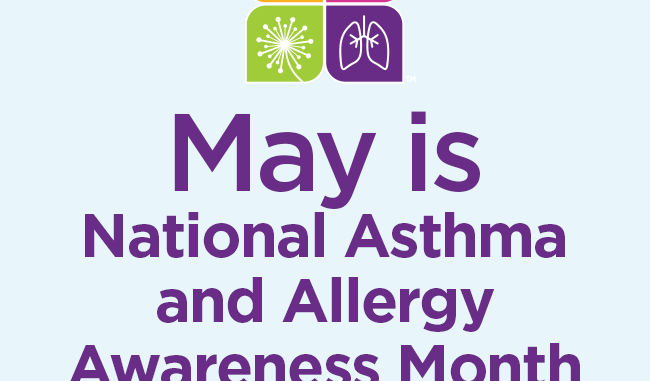
As the COVID-19 pandemic continues to evolve, many are concerned that having asthma means they are at increased risk for developing symptoms of the coronavirus if they are exposed. They also wonder if their symptoms will be more dangerous if they have the virus.
May is Asthma Awareness Month, making it an ideal time to learn more about the disease. Asthma is the No. 1 reason children miss school and the third leading cause of pediatric hospitalizations.
Both COVID-19 and asthma affect the respiratory system. Asthma is a chronic disease of the airways characterized by inflammation, tightness in the chest and increased mucus production. The coronavirus is one of a large family of viruses.
Asthma cannot be cured, but it can be controlled. Scientists do not know what causes asthma, but it is likely due to a combination of genetics and environmental factors. Regular cleaning of the home can help control asthma triggers by limiting allergens such as dust mites, pollen, feathers and animal fur.
The common warning signs and symptoms of asthma include coughing at night, wheezing, shortness of breath, tummy aches and sneezing. COVID-19, a disease caused by coronavirus, attacks the respiratory system and can aggravate asthma systems like shortness of breath and difficulty breathing.
Anyone with an underlying respiratory condition, including asthma, could be at risk if they become infected with the coronavirus. The U.S. Centers for Disease Control and Prevention has listed asthma as one of the chronic illnesses that may increase the risk for a severe case of COVID-19.
Children and adults who have asthma should follow all the precautions that are currently being recommended to prevent the coronavirus, such as hand washing and social distancing, and continue taking their medications to keep their asthma under control. If symptoms develop, especially if they have a fever, increased fatigue and muscle aches, call a doctor to discuss next steps and to arrange appropriate evaluation as needed.
Families of children with asthma should have an Asthma Action Plan in place. These action plans should be discussed with your child’s doctor and an updated plan should be provided to your child’s day care or school.
For more information, visit wolfsonchildrens.com/asthma.
Carey Smith, RRT
Registered Respiratory Therapist and Lead Asthma Educator
THE PLAYERS Center for Child Health, Wolfson Children’s Hospital of Jacksonville

Be the first to comment